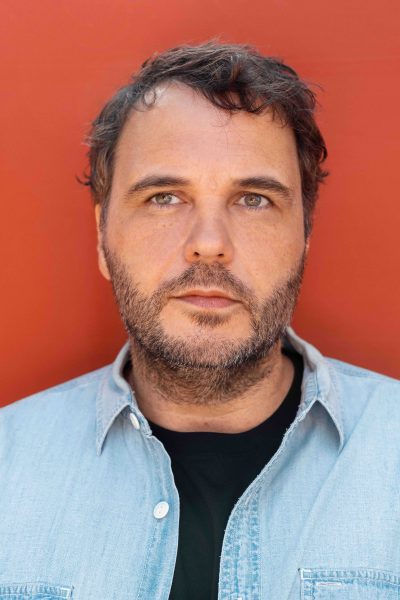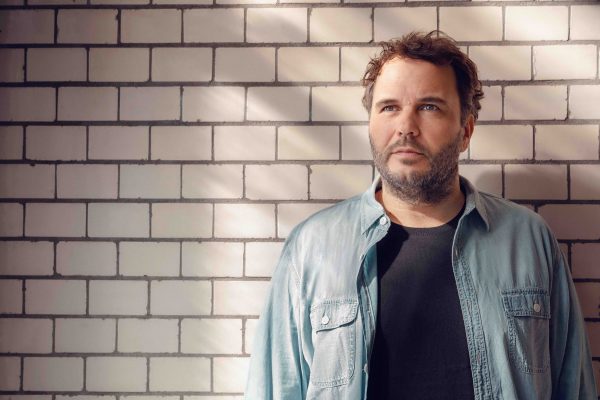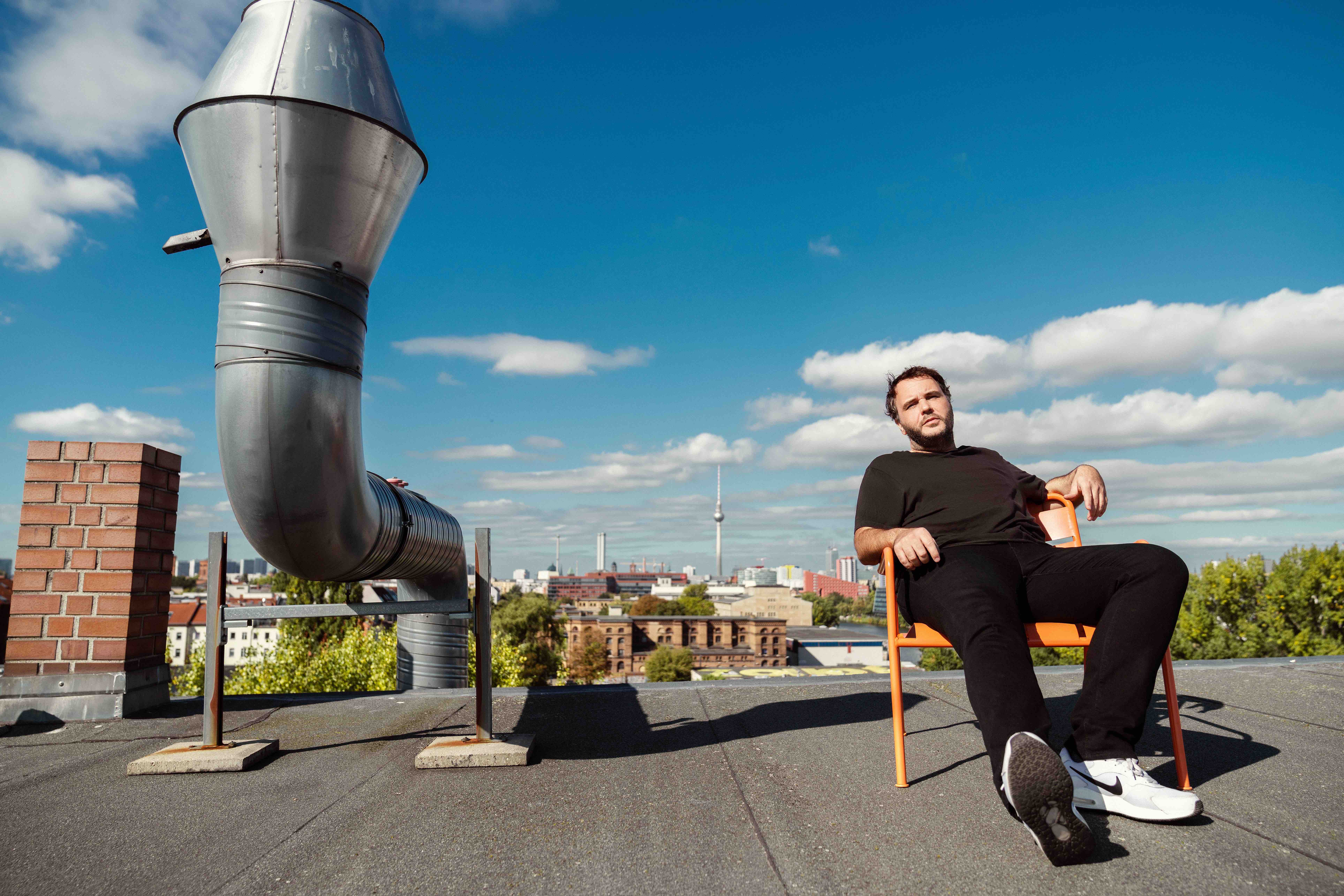Ian Pooley has been a significant figure in the electronic music landscape in Germany and beyond. From his early success as one half of T’N’I with DJ Tonka to his work with Daft Punk and the sound he established as a solo artist for a whole genre of music, his career stretches nearly three decades and he continues to be a regular fixture in catalogues and in DJ booths around the world.
A precocious talent, Ian Pooley was but a teenager when he and DJ Tonka released their first records as T’N’I in the early nineties on Force Inc. Pooley had found an early affinity for the machines and from those primal Techno sounds he and Tonka produced to the deeper sounds of House that he would eventually produce on his own, the eccentricities of the machine sounds had remained at the core of his music.
He signed to Richard Branson’s V2 records in the late nineties, and flirted with commercial success alongside Daft Punk and Mousse T. but remained closer to his homegrown roots than those contemporaries. He would carve out a sound between Techno and House music erring on the deeper aspects of the latter, with the stark textures of Techno ebbing forth from classic synthesisers.
These processes are still fundamental to Ian Pooley’s records, with the MPC drum machine as the central piece of gear in his studio and music, including his next LP. “It’s been delayed for many reasons,” says Ian over a telephone call, but patience prevails for the German producer. “I think it’s totally fine, because when the time is right, it’s right. Once it’s out it’s going to be fine.There comes a moment when you realise that all the tracks fit together and now is the right time.”
I phone up Ian Pooley in Berlin after he played Jaeger to see how his set went. “It was great fun,” he says while praising the set-up at Jaeger. “ I loved the mixer. I wish every club would be like this.” Ian’s set stayed true to the sounds of his records while moving between elements of acid, R&B and Jazz. We talked about his set and more and his set is available to stream above.
 How did you feel your set at Jaeger went?
How did you feel your set at Jaeger went?
It was really nice. I was a bit surprised when Ivaylo told me it was upstairs, in the yard, but it was nice and a really lovely crowd, who were kind of up for different things.
Yes, I noticed there were some elements of Jazz, Acid and some vocals in there too. Did you prepare your set as such?
My usual way is to listen to what the DJ is playing before me. I tend to I arrive an hour before my set and then I’ll know what I’ll play for the first four tracks and then I go from there. I think about how I can build the set and I watch the crowd.
Ivaylo played before you, and I know you’ve played before in the past, so you must have known what the vibe was like?
Exactly. And right now there is a whole new generation of audience who didn’t really experience House music from the late nineties. I can see all over Europe where I travel that the crowd is mostly fascinated with that sound and for me that’s really easy.
That was actually something I was going to ask you about. I’ve noticed that this next generation is getting back to those early nineties sounds.
My theory is that everything comes back in 15-20 year cycles. It’s very up and down. People who are born in a certain decade always grow up, being fascinated by the music from that decade, because maybe they heard music like this, but not really consciously because they were too young. But it stays in their head and when they consciously start hearing music they are really into it. It’s the same for me being fascinated with Disco music from the seventies, because I was born in the seventies.
What’s your relationship with the music from the nineties today? Because you were around, making the kind of music that they are hearing for the first time today.
Sometimes it’s a bit awkward for me to play, because they are really old tracks and I’ve played them a million times. But I always try to remember that for them it’s brand new stuff and really fresh. It’s cool that it’s coming back, because that’s also the way I produce.
Do you feel that the younger crowd that come to see you, know who you are and that they expect kind of Ian Pooley sound?
O ja. There are always people coming to me before and during my set to request certain songs, and it’s usually three or four songs that I expect them to request. It’s usually stuff from ‘98 to ‘00. And that’s ok, but there are also some people that know my current stuff.
Are there different expectations of you as a DJ when you play back home in Berlin, than when you play abroad?
Yeah, because when I play abroad there are a lot of people coming to hear my music. And because when I play in a place like Oslo, where I would play maybe once every three years, for a lot of people it would be amazing if I could play certain songs. In Berlin, it’s more like a playground where you can play more current stuff and dig a little deeper and find gems for other people.
I suppose you know the community so well there at the moment, so they expect something different from you all the time.
No, it’s super open. There are no real expectations, and they are really open to anything. That’s what I really like about Berlin, I can test out new tracks that I produced or that people sent me so I can see whether I’ll keep them or what I can improve on.
So it’s a testing ground for your own music?
Exactly, and Berlin is always on the forefront so it’s always good to see where things are heading.
I remember there was a Resident Advisor interview where you were discussing the Brazilian sounds that you were associated with and how you were trying to get away from that label. Is this still something you are being associated with today?
No I made my peace with that. I was against it for so many years. I did this exchange 8 years ago, so that’s when it was still fresh. I produced those kinds of sounds in the early 2000’s to about 2005, but it was haunting me for the next 6-7 years. I had this moment in 2005, that I said “Ok, I really don’t want to do this anymore”. It was too commercial to push it, and it took me a while to get rid of this kind of image. Now eight years later, I’ve totally made peace with it, and it’s totally fine.
Do you feel that you need to have some sort of fluid conversation between the music that you play and the music that you make or do you feel that you can go and do a Techno set when you’re playing abroad?
O, yeah, I do that from time to time. A couple of months ago, I played in Los Angeles and I played a set that was Techno. But in general as a consumer, as a listener of music, I’m a bit bored with Techno. I think it’s reached its peak, and at the moment it’s just more loopier and everyone is just going faster and faster, and I find that Techno is going to go a bit down again. That happened in the late nineties, it happened in 2009, and now it’s been going slowly for the past 6-7 years and now I’m a little bit bored with it. So I think I’m more and more looking at House and raw organic House.
You make your music based on the same fundamental working processes of the nineties with those same machines at the core of your work…
Yes, I was one of the last guys to introduce a computer to my setup. I only did that 11 years ago. 80% of my tracks are made on the machines, and then I just hit record in Logic for example and finalise the arrangement. It’s just the way that I work and there are a couple of steps that might seem unnecessary for new producers, but it’s just the way I work, and there is no reason to change.
The reason I brought that up, is that those raw House sounds that you talked about is naturally conducive to those machines.
Exactly, it comes naturally. That’s how they sound. That’s what I like, that’s the thing I want to achieve. The core of my setup is a MPC3000, the software is from 1995. A lot of people ask me why I don’t use the new ones, it’s better to store your samples and your sound banks and bla bla bla. I always sample from scratch, when you turn the machine on there are no sounds, and it just sounds better.
So where does the evolution in your work comes from if you’re using the same methods and machines that you’ve used since the nineties?
I don’t know. In the nineties I worked really fast and really raw. In the nineties you couldn’t really open and close an arrangement, like you can now with Logic and your computer. If you wanted to keep your track, you had to record in that moment. So the tracks sounded even more raw with less elements. And some tracks you can hear mistakes that other people don’t hear but I hear. So these days, I tend to spend too much time in the arrangement, like everybody else.
So I would say, these days the arrangements are more refined and there are more elements, but all and all, when people ask me, I can’t tell you, because I just do my music and I’m happy that recognise my music when they hear it. It means that I can have some kind of signature to my music, but how I do it, I really don’t know. I just sit in the studio and work.
 Do you consider yourself a veteran of the scene in that respect?
Do you consider yourself a veteran of the scene in that respect?
Well there are a lot of people that mention this all the time, that’s just not my style. I’ve been doing this since 1991, since the scene started and a lot of people said that Icreated the genre that sits between House and Techno in the mid nineties, and then I did the more French stuff , working with Daft Punk. I could say it, but I’d rather be known for the stuff I’m doing right now, sitting in the current scene with the new producers.
That’s the advantage of electronic music, it’s essentially ageless. The voice of the music is the voice of the machines and that can be as contemporary as you like it.
Exactly and I think that’s enough for me and I’m not good at doing PR for myself.
What was it like for you to work on a major label like Virgin?
I was with V2, there’s a huge difference. Richard Branson sold Virgin in the ‘90s and he decided to go back into the record business in the mid ‘90s and he founded V2.
I didn’t know that. But it was still a big label, was there a lot of freedom there?
Totally. The only thing we ever discussed was which tracks we were going to release as a single.
You mentioned working with Daft Punk earlier and I know you’ve worked with Mousse T. too, and what I do find interesting about your career is that where those contemporaries went in a very pop direction you managed to stay fairly close to the roots of the music. Was that a conscious decision on your part?
Well I had a few attempts. Back then it was the sign of the times to go a bit more commercial, because House tracks were entering the charts. So I did one or two things that in hindsight I shouldn’t have done, but luckily they didn’t get the attention.
I think it was totally cool what they did. Mousse T. wasn’t just a great House music producer, he was a great pop/rock producer before that. With Daft Punk I knew that they always wanted to go down that road, because they’ve been huge fans of ‘70s soul and funk. I knew they wanted to test if they could pull it off and it worked out really well for them.

